Clifford Garstang's Blog, page 131
May 14, 2011
Short Story Month 2011: Tin House -- Katie Arnold-Ratliff (#ssm2011)
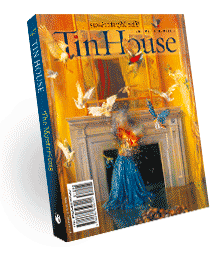 Does anyone else think it a little unusual for Tin House the magazine to be publishing an excerpt from a book that Tin House Books is publishing this month? That is the case with "Bright Before Us" by Katie Arnold-Ratliff
Does anyone else think it a little unusual for Tin House the magazine to be publishing an excerpt from a book that Tin House Books is publishing this month? That is the case with "Bright Before Us" by Katie Arnold-Ratliff . Not her fault, of course. Does Tin House often do this?
. Not her fault, of course. Does Tin House often do this?In any event, I didn't notice the disclaimer on the first page that this was an excerpt, so I found the piece disappointing as a story. As a taste of a novel, though, it's fine.
The narrator, Mr. Mason, has been on a field trip with his very young students, and apparently the class came across a body on the beach. So now that they're all back in school, the principal and parents are rightly concerned--especially because Mason was seen sobbing. So many of the parents are attending class this first day back. Meanwhile, at home, Mason's wife is getting a sonogram, which is a big deal because she has a history of miscarriages. Back at school, the police call Mason with some questions about the "timeline" of the incident at the beach, and two juicy tidbits are revealed: Mason saw the woman jump off the bridge and the woman was his ex-wife. Needless to say the police have some more questions for Mason . . .
So. Not a short story, in my opinion (and it's not claiming to be one, either, I hasten to add). An intriguing sample of a novel, though.
Published on May 14, 2011 04:52
May 12, 2011
Short Story Month 2011: AGNI -- Sigrid Nunez (#ssm2011)
 AGNI 73 arrived in my mailbox yesterday, so last night I read "It's All Good" by Sigrid Nunez, whose work I've read and enjoyed before. Although in the end I liked this story very much, I confess that I was initially disappointed when it appeared that the story was "about" Alzheimer's. Fortunately, it was much more than just another Alzheimer's story.
AGNI 73 arrived in my mailbox yesterday, so last night I read "It's All Good" by Sigrid Nunez, whose work I've read and enjoyed before. Although in the end I liked this story very much, I confess that I was initially disappointed when it appeared that the story was "about" Alzheimer's. Fortunately, it was much more than just another Alzheimer's story.The narrator, a single woman in Brooklyn, speaks to her brother on the phone about their mother who is living in a nursing home, and then they jointly pay a visit on the mother's birthday. There are lots of interesting details at work here: the mother's dementia came on very quickly (and so Alzheimer's, a word Nunez doesn't use, might not be the problem); the narrator and her brother have different fathers--hers died suddenly and his walked out; the narrator and her brother, reasoning that they weren't full siblings, were in love as children and thought they could marry until the adults set them straight; the brother, Beany, clings to his childhood nickname even now when he's in his forties; the mother reacts to very little but she does react to the image of Brad Pitt in a movie, and so Beany gets the idea of bringing a Brad Pitt look-alike to her birthday. And eventually we come to an understanding of why she reacts to Pitt the way she does.
It's a very good story.
Whenever I read a story in AGNI I concentrate on the opening line (because of Sven Birkerts's essay in AGNI 63: Finding Traction). Here we have: "My brother calls like he always does after visiting our mother at Villa New Beginnings." I don't know how Birkerts would analyze this, but here's what I get: voice ("like he always does" isn't grammatically correct, but it is how many people speak, and so it gives some sense of this narrator, and we already have a point of view established by "my brother"); the name of the nursing home, Villa New Beginnings--and the visit to the mother makes it clear what kind of place it is--is brilliant. So, for me, it's an effective opening.
Published on May 12, 2011 06:21
May 11, 2011
Book Balloon's Short Story of the Week Reading Club (#ssm2011)
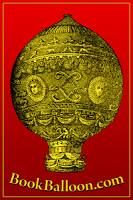 Short Story Month followers may be interested in this ongoing short story discussion:
Short Story Month followers may be interested in this ongoing short story discussion:Every week, members of Book Balloon (registration is free) discuss a different short story selected by the Library of America. Join the discussion and even consider leading the way! See Book Balloon Short Story of the Week Reading Club for details. And, as I understand it, they plan to open the discussion up to any story, not just the LOA selections--if someone will volunteer to take on the role of host.
Published on May 11, 2011 08:56
Book Balloon's Short Story of Week Reading Club (#ssm2011)
 Short Story Month followers may be interested in this ongoing short story discussion:
Short Story Month followers may be interested in this ongoing short story discussion:Every week, members of Book Balloon (registration is free) discuss a different short story selected by the Library of America. Join the discussion and even consider leading the way! See Book Balloon Short Story of the Week Reading Club for details. And, as I understand it, they plan to open the discussion up to any story, not just the LOA selections--if someone will volunteer to take on the role of host.
Published on May 11, 2011 08:56
Short Story Month 2011: Gettysburg Review -- Geoffrey Lee (#ssm2011)
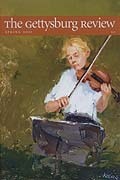 "Niramiai" by Geoffrey Lee is the first story in the current issue of
The Gettysburg Review
.
"Niramiai" by Geoffrey Lee is the first story in the current issue of
The Gettysburg Review
.I like this story a lot because it's fresh and different. It's not about the same old world we read about all the time. It's set in a working-class Buffalo bar that is the scene of a sumo wrestling tournament, of all things. A construction worker who saw a documentary about sumo encouraged his drinking buddies to participate, and now we're down to the championship match: the narrator (who is short and so has an advantageously low center of gravity) vs. John, a cocky personal trainer.
The narrator arrives with his Polish girlfriend, Nadia, and John is with his girlfriend, Andrea, whom he doesn't treat very well. They drink--quite a lot--and then it's time for the match, in a ring that is marked by blue painter's tape on the floor of the bar's back room.
Meanwhile, the narrator has reviewed some of the features of sumo, the training of the wrestlers, the dimensions and composition of the ring, and some of the rules. And he knows this because Andrea--John's girlfriend--has given him a book about it that John wasn't interested in, because he wasn't taking the tournament seriously.
It's the combination of circumstances that give the story its texture: there's no construction work around, so the narrator has nothing to do; Nadia is newly arrived and, although her accented English is good, she doesn't quite fit in; the men--not unlike real sumo wrestlers--have guts, even the personal trainer, and seem to be sensitive about them, hiding them under baggy t-shirts or sweat shirts (the narrator won't let Nadia touch his); only the narrator really knows the rules; they drink a lot of beer and collect the bottle caps that are marked like a deck of cards, but the narrator isn't sure what he'll do if he ever collects the whole deck.
While they seem to think things will get better--they have to, sooner or later--for now their world is pretty bleak. But this one competition, this one bit of dignity, is all the narrator has to hold onto.
Nice.
Published on May 11, 2011 08:01
"In Hoan Kiem Lake" -- flash fiction in The Northville Review
 I was thinking this morning about my series of very short stories featuring Oliver. Here's the most recent published piece, from The Northville Review: In Hoan Kiem Lake.
I was thinking this morning about my series of very short stories featuring Oliver. Here's the most recent published piece, from The Northville Review: In Hoan Kiem Lake.
Published on May 11, 2011 06:49
Time for a blog makeover
I'm tired of the look. Blogger templates have come a long way since I did the last redesign. Stay tuned for a change . . .
Published on May 11, 2011 05:19
May 10, 2011
Review of Shanghai Dancing by Brian Castro
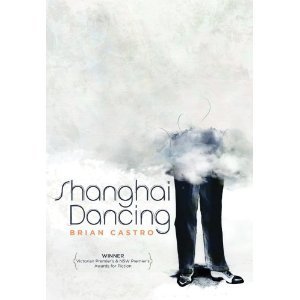 Shanghai Dancing
Shanghai Dancing by Brian Castro
by Brian CastroKaya Press, 2009
As lyrical as a book can get, this one will be a tough read for some. The beautiful prose is dense and hard to follow in places, and the meandering plot sometimes seems to get lost—or to lose the reader. But perseverance is rewarded.
In its scope, the book reminds me of a The Book of Fathers
 , the Miklós Vámos book I reviewed here last year. Both books are family sagas that sprawl over a few centuries. But while Vámos's story is chronological and more or less straightforward, this one jumps around in time and is anything but straightforward.
, the Miklós Vámos book I reviewed here last year. Both books are family sagas that sprawl over a few centuries. But while Vámos's story is chronological and more or less straightforward, this one jumps around in time and is anything but straightforward.The focus is on António Castro, the child of Jasmine Wing, third wife of Arnaldo Castro. The family is a mix of Chinese, English, and Portuguese, and the story takes place primarily in Shanghai, Hong Kong, and Macau, with detours to Brazil, Japan, Australia, and England.
Even the point of view of this book is complicated. It seems to begin in second person (which is really first person, since there can only be a "you" if there is first an "I"): "Winter had descended on Shanghai. There was no real hope of finding tomatoes. You went looking anyway. It was a cure of sorts. No, not the tomatoes, but the search." And then the "I" does reveal itself—he's the current generation of the family, looking to solve some family mysteries.
We learn that the narrator was born in Shanghai, but: "It wasn't long before I was sent away. I survived forty years in Australia. My mind was never right. Time went by. Then I got the urge to return to China. To those rising and falling cities, now and then uncovered by the tide of memory. To pursue the emptiness of things disappearing all around." And so he's back in Shanghai on a journey of exploration, beginning by trying to track his father down. (I loved this section, as I've spent some time in Shanghai and have been in the Peace Hotel, where the narrator stays.) He also meets Carmen Wu, who will feature throughout. Through old photographs—reproduced in the book—the narrator explores the pre-war Shanghai of his father.
Then he's in Hong Kong, where his father moved after the war. (I loved this part, too. He stays in Chungking Mansion, which is the dump on Nathan Road I stayed in as a backpacking tourist in 1978.) And so he explores the exploits of his father and his mother's brothers, one of whom as become a wealthy real estate and shipping tycoon. There he meets a cousin, Cindy Ling, born after he was sent to Australia.
After an interesting detour in which the reader learns the story of his grandmother's arrival in China from England and he contemplates travel to England in order to learn more about her, there is a curious switch back into second person. In one paragraph we're in first ("What had happened in China would have to be pieced together, and I would begin at the Liverpool YMCA . . .") and after a space break we're in second for the journey to England: "Now you know why you found it so easy as well, travelling light without knitted brows and chafing hands . . . You think more about her in that Shanghai winter . . . You sit on your grandmother's heavily bandaged knees." But upon arrival, we shift back: "At Heathrow they asked my name . . ."
This switch isn't just a mistake, obviously. The author clearly had a reason. Is there a sense that the narrator is, in a way, a split personality? That he feels disconnected from his grandmother? Clearly the distance in time—it's been at least 40 years—suggests this is the case. But there seems to be more at work here. This narrator isn't sure who he is, or he isn't sure who anyone is, really. And so it isn't surprising that he occasionally steps outside of himself (this about his grandmother isn't the last time the shift into second person happens). It's an intriguing technique.
He returns to Hong Kong and accumulates more information about the family—connections to Macau Triads, to the Nagasaki Martyrs of the 17th Century, to secret children, to stashes of inexplicable Chinese calligraphy that might or might not hold the key . . .
It gets more and more complicated and leads to a thrilling climax. Quite a book. It's a fascinating, imaginative retelling of the history of Southern China, filled with characters who are both unfamiliar and unforgettable. I'm looking for more books by Brian Castro.
Published on May 10, 2011 08:38
TSR congratulates Pushcart Prize winning author | TSR's Lagniappe
Because I rank Pushcart Prize-winning journals, some people think I get advance notice of winners. I don't. I hear about them the same way everyone else does--on blogs and Facebook. Here's an announcement that just appeared about a story from The Southern Review:
TSR congratulates Pushcart Prize winning author | TSR's Lagniappe[image error]
TSR congratulates Pushcart Prize winning author | TSR's Lagniappe[image error]
Published on May 10, 2011 07:45
Short Story Month 2011: The New Yorker -- Michael Ondaatje (#ssm2011)
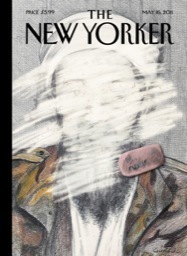
May 16, 2011: "The Cat's Table" by Michael Ondaatje
I liked this fiction a lot—Ondaatje is a great writer—but it's not a short story. (Then why is this post labeled as being part of Short Story Month? Because it's what I read yesterday hoping it was a story; a novel excerpt will have to do.) Ondaatje's novel of the same name will be coming out later this year and it seems like it's going to be a good one.
What I really liked about the piece, especially at the beginning, was the point of view, although in this excerpt it isn't taken advantage of fully. I imagine the book might do a better job of it. We begin in third person, a description of a boy on his way to a ship, riding through the streets of Colombo. ("He was eleven years old that night, green as he could be about the world, when he climbed aboard the first and only ship of his life.") But then a shift to first person: "I do not know, even now, why he chose this solitude. . . I try to imagine who the boy in the narrow bunk was. Perhaps there was no sense of self in his nervous stillness, as if he were being smuggled away accidentally, with no knowledge of the act, into the future." Then there is a jump and the "I" becomes the boy, suggesting that this is retrospection at its best—where the present and past characters are distinct. The opening of the story highlights the distinction, although of course we don't know how this is really handled in the novel because the story abandons it here and becomes a straightforward narrative about the boy's journey on the ship. (There is another brief glimpse of the retrospection midway: "What was I in those days? I recall no outside imprint, and therefore no perception of myself.")
And that journey is interesting enough. The boy is seated at a table with 2 other boys and some interesting adults, each providing the opportunity for some shipboard excitement. One such adventure involves going ashore in Aden and returning with a smuggled dog who plays a role in the death of one of the other passengers. Then there is the boy's cousin, who is also on board—an older girl who is attracting attention from some of the male passengers. And of course the boy himself has issues—his parent are divorced and he's been living with relatives, but is now on his way to London to be with his mother.
It's a very readable piece and suggests some of the themes of the novel. But it's not a short story.
[image error]
Published on May 10, 2011 05:36



